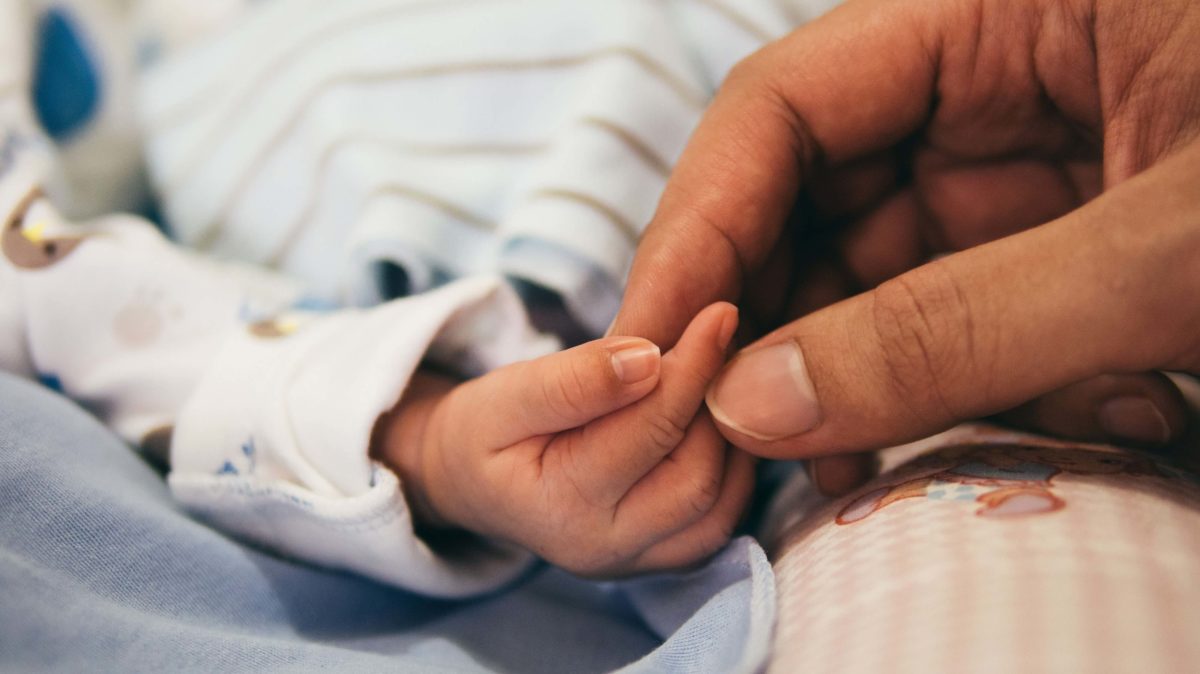[vc_row][vc_column][vc_column_text] The flu this year is scary. For a variety of reasons that experts are still working to understand, the flu is killing around 4,000 Americans a week and will likely end up taking more lives than were lost to the Swine flu in 2009-2010. As a mother of two young children ages 3 years and 15 months, I’m cognizant of the dangers of strong viruses on small bodies, which is why I was moderately worried when both sons caught the flu this year.
Last Friday I arrived home from work and greeted my husband — he had stayed home from work to be with the boys that day – and we were happy to relax after our stressful days spent wrangling children and legislators. Our 15 month-old, Abe, had been sleeping for a couple hours by the time I got home, but my husband had been regularly checking on him so we figured he was just tired from sleeping off his illness. Around 7pm he woke up with a high fever, the shakes, and there was something about his fast breathing and little whimpers that sent my mom-senses into overdrive. I had to take him to get medical attention.
As my husband put my son’s coat on him, I quickly ran to get my shoes and make sure I had our insurance card. We rushed to the closest urgent care that accepted our insurance, and after checking his oxygen levels, they told me he needed to go straight to the emergency room. His levels were at 83. 90-92 is where the hospital later told me they wanted his levels to be while breathing room air. 95+ is considered normal.
That twenty minute drive from urgent care to Primary Children’s was terrifying. Abe wasn’t keeping his eyes open and his breathing was shallow. I spent a dangerous amount of time checking on him whilst speeding to our destination on the dark highway. I sang to him, spoke his name over and over — “Abe… Abraham… Abraham… stay awake little boy…” — held his hand and touched his face. I was worried he would fall asleep and not wake up.
At the hospital he was prioritized at triage. He was put on oxygen as we anxiously sat in the waiting room. Shortly after, we were escorted to a room where five medical professionals met us and attended to my son. I was later told that he was showing signs of shock when admitted. With an IV, some Ibuprofen, canned oxygen, the wonderful work of the nurses and doctors at Primary Children’s, and a lot of mommy snuggles, my little boy began to recover.
We were released from the hospital around noon the next day with instructions for follow-up care. As we drove home, both of us exhausted from the difficult night, I began to think the same thing over and over — “thank god for modern medicine.” And, as often tends to happen in these scenarios, my brain replayed the past 24 hours but with small changes: worst-case scenarios. “What if this had happened? What if that had happened? What if we didn’t have health insurance? Would I have taken him in as quickly? Would I have waited until it was too late?”
The terrible reality is that there are some Utahns — some children — who don’t have the luxury of modern medicine. Why? Because we in the United States systematically consider medical care just that: a luxury.
Low-income families without insurance, or with bad insurance, often have to weigh certain factors before taking their children to the doctor, and it’s that delay that sometimes has horrible consequences. It is a shortfall of our society that we cannot empathize with the pain of low-income people who have to choose between taking their sick children to the doctor and feeding their families. And while there are certainly a lot of individuals who do empathize with those low-income people, it is not a value that we as a country prioritize, as is evidenced by our healthcare-as-a-luxury system.
Our greatest shame is our failure to address the needs of our sick neighbors in a systematically impactful way. No mother should have to draft a GoFundMe page to pay for terrifying medical bills while she’s aching for her sick baby in an emergency room. No father should have to take on a second job to make sure his children get the medical attention they need. The terror and pain parents experience on behalf of their children in a medical emergency is almost indescribable, and in the richest country in the history of the world, we have the power to change our healthcare system so that it doesn’t financially torment families. We cannot maintain the status quo of our healthcare system, because to do so when we have the capacity for change is nothing short of cruelty.
If you want to see change in our healthcare system, there are many options available:
- Sign and collect signatures for the Medicaid expansion ballot initiative.
- Call your senators and representatives in support of Medicaid expansion.
- VOTE for politicians who support compassionate healthcare reform (I’m personally a fan of Medicare for all).
- REGISTER VOTERS, and then make sure they show up in November.
- Keep talking about the need for healthcare reform. Stories change minds far more than charts or graphs do. Tell yours!
Katie Matheson is the Communications Director for Alliance for a Better Utah
[/vc_column_text][/vc_column][/vc_row]

